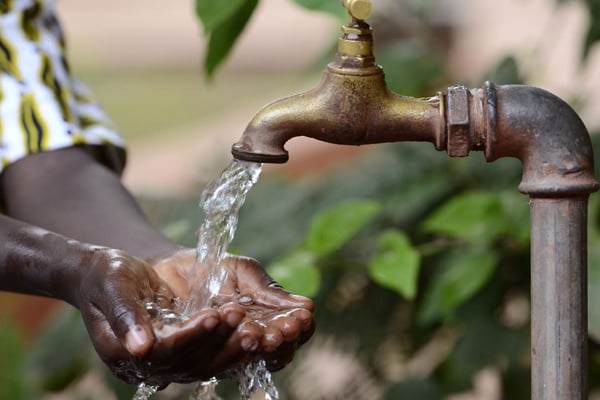Communities failing efforts to provide water, improve hygiene

What you need to know:
- We have been in Kabale, Bugweri, and Maracha districts as part of a wider effort to ensure that no children under five years should continue to suffer from malnutrition and stunted growth.
Today we conclude our heightened effort to restore nutritional issues among children in most of our rural and peri-urban communities to the discussion agenda.
We have been in Kabale, Bugweri, and Maracha districts as part of a wider effort to ensure that no children under five years should continue to suffer from malnutrition and stunted growth. Today we conclude the launch of the project in Nwoya district.
It also marks the beginning of a five-year effort under the Right to Grow project, reminding communities that malnutrition is not just about failing to eat well or having a balanced diet.
Malnutrition is deeply associated with other critical issues such as access to clean and safe water, and hygiene.
It is not enough to have all the right foods for the body but continue to expose yourself and the family to unhealthy practices such as open defecation, not washing hands after using the toilet etc.
Accessing safe and clean water is as important as having a balanced diet and it is difficult to disassociate the two in our efforts to ensure that families meet their good health objectives.
A good source of water is an important determinant of the health status of household members. Safe and clean water is a prerequisite for reducing many common killer diseases of both adults and children such as diarrhoea, dysentery and cholera.
Preventing all these is a critical component in our efforts against hunger and malnutrition. Now we must admit that over the past 20 years, the government supported by partners has done a good job in ensuring that access to water and other hygiene practices increase all throughout the country.
For example, the number of boreholes available in most communities significantly increased all through 2010 and 2020.
By the year 2000, slightly over 78 percent of the population had no handwashing facility at all. Just under three percent of the population had a facility and access to soap and water.
But by 2016/17, the national household survey noted a percentage increase of access to safe water of up to 77 percent among rural areas for that period.
Now throughout our brief tour of the most affected communities when it comes to nutrition, we picked up a few lessons.
Communities and leaders at the sub-county levels are failing government gains in hygiene and access to safe and clean water.
For example, majority of the water points like boreholes that were installed during this period are no longer functional.
Corruption and theft of borehole equipment are some of the common factors that are reversing that gains that had been made.
Other issues cited include inadequate consultation with communities, political interference – where politicians such as area Members of Parliament influence the location of a borehole for personal interests.
In some communities of eastern Uganda, some residents pointed out examples where community boreholes were installed in homes of local councillors and chairpersons, which is a clear sign of influence peddling.
Accessing these water points became very difficult because some of these homes have “perimeter fences and dogs” that made it very difficult for ordinary members to utilise them.
As a result, some of these water points were completely abandoned and communities resorted back to their unsafe open sources.
In other areas, it was an issue of the community water committees failing to do their part in protecting and maintaining the boreholes.
Residents testified that the people who steal the borehole equipment are well known but are never arrested. “Some of them are children of the local leaders, they sale these borehole parts to metal scrap dealers”.
As we traversed the country, we laboured to remind communities to take full responsibility of the resources available to them.
Fighting hunger, malnutrition and other associated issues of hygiene, access to safe water is everyone’s responsibility and it starts with jealously protecting those resources such as water points that have been made available.
Under the re-energised Parish Development Model, we see opportunity for a culture of zero tolerance to some of these practices that are reversing our gains against malnutrition.
Dr Daisy Owomugasho, regional director, The Hunger Project




